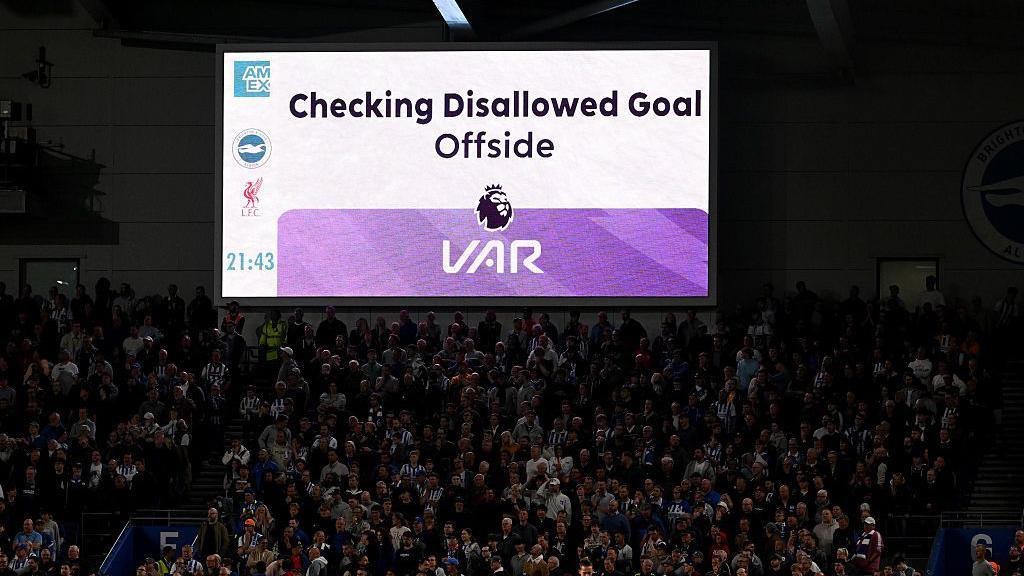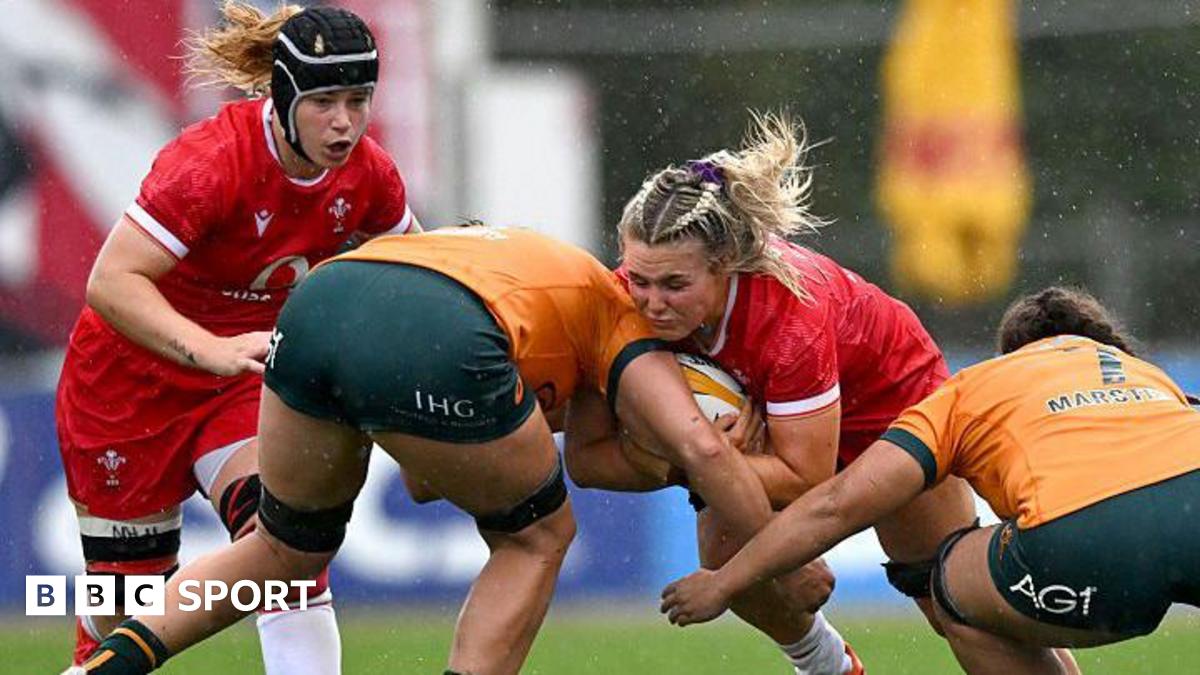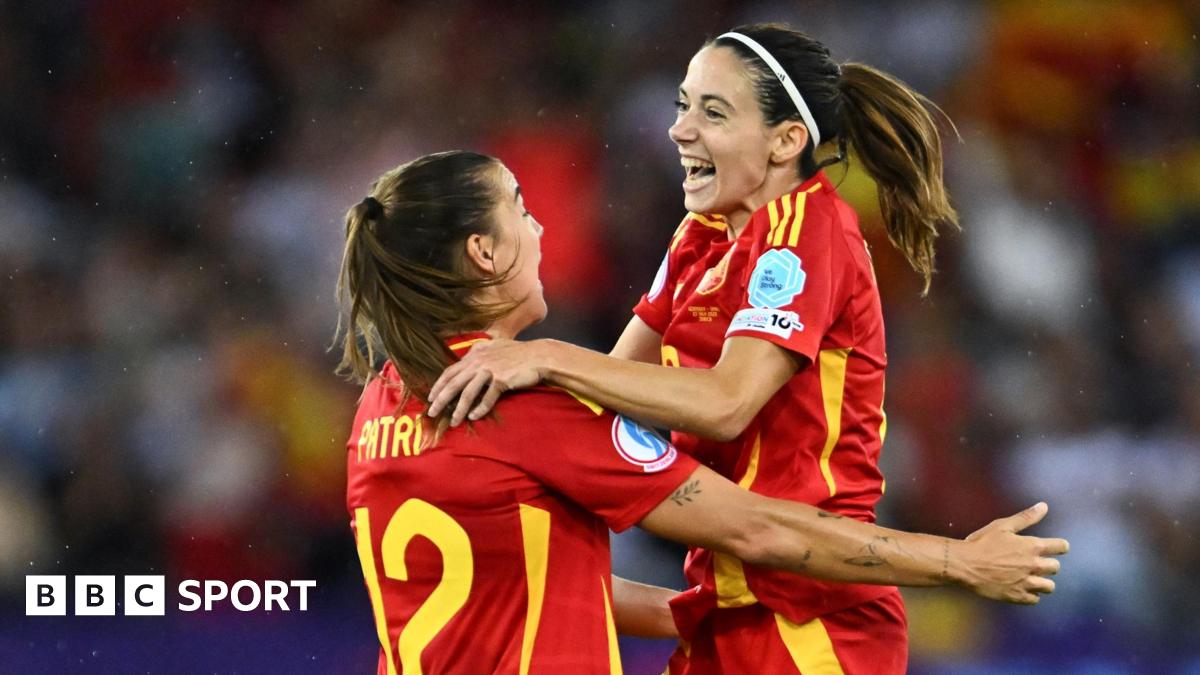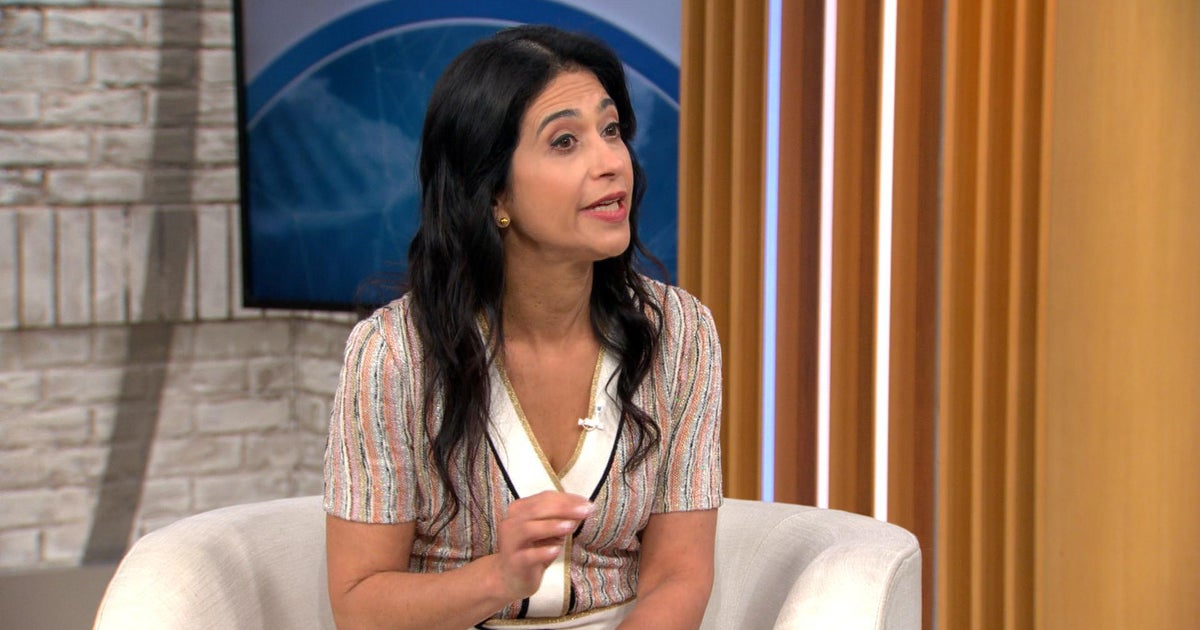 Image source, Getty Images
Image source, Getty Images
Video Assistant Referee (VAR) was introduced to the Premier League at the start of the 2019-2020 season
Football Association chief executive Mark Bullingham says there isn't "any need" to extend the use of the video assistant referee system, because there are "enough interruptions to the game in the current model".
There has been speculation that the International FA Board (Ifab) which governs football's laws, could be asked to consider widening video assistant referee (VAR) powers to include corner kicks and second yellow cards.
However, the FA - which has a seat on the body alongside the three other British associations and Fifa - has now made its opposition clear.
"We don't think there's any need to extend the use of VAR," Bullingham told BBC Sport.
"There are regular discussions in Ifab about what VAR should be, and how it should move forward. I think our position is that we're in a good place now.
"Of course if someone brings an item forward for Ifab to consider, then as a group we'll consider it.
"But as a group we don't necessarily think that VAR needs to be extended at the moment."
When asked why he felt that way, Bullingham said: "We think there's enough interruptions to the game in the current model."
Currently, the technology can only be used to rule in selected situations, including goals, penalty decisions, direct red cards and mistaken identity, but some believe it should be expanded to help improve the accuracy of decisions. Calls on free-kicks and corners are currently made by on-field officials.
In 2023, Fifa's referees chief Pierluigi Collina said that widening the use of VAR would be considered, but insisted it must not mean more delays.
BBC Sport has been told by several sources that Ifab has not received any proposals to consider widening VAR's scope, and that a number of board members would oppose any such move if it was submitted at its annual meeting in November.
Any vote would take place at the body's annual general meeting in March, set to be held in Cardiff. Each of the British associations has one vote on motions, while Fifa has four. Passing a rule change requires a three-quarters majority of the board to agree.
Ifab and Fifa were approached for comment.
MOTD2: Is VAR taking the intensity out of Premier League football?
Second yellow controversies
Last season, Leandro Trossard was sent off by referee Michael Oliver in Arsenal's 2-2 draw at Manchester City.
The midfielder was given a second yellow card in first-half injury time for kicking the ball away following a foul on Bernardo Silva.
Under existing rules, VAR was not able to intervene.
Following the match, the Key Match Incidents (KMI) panel said Oliver made the right decision. But It was not unanimous, as one panellist thought the "split-second nature of the kick away was enough of a mitigating factor".
In the first half of the 2024-25 Premier League season, the KMI panel judged that five second yellow cards were given incorrectly:
Brighton 2-2 Nottingham Forest, 22 September - Morgan Gibbs-White (82)
Fulham 1-3 Aston Villa, 19 October - Jaden Philogene (90+3)
Ipswich 1-1 Leicester, 2 November - Kalvin Phillips (77)
Bournemouth 1-2 Brighton, 23 November - Carlos Baleba (59)
Crystal Palace 2-2 Manchester City, 7 December - Rico Lewis (84)
Meanwhile, three second yellow cards were missed:
Ipswich 2-2 Aston Villa, 29 September - Sam Morsy (70)
Tottenham 1-1 Fulham, 1 December - Sasa Lukic (60)
Everton 0-2 Nottingham Forest, 29 December - James Tarkowski (45)
A Football Supporters' Association survey in 2023 found almost two-thirds of fans opposed the use of VAR in English football.
Last year a senior Premier League official admitted VAR decisions were taking too long and offering a poor in-stadium experience for fans.
The 2023-24 Premier League season ended with Wolves triggering a vote to scrap VAR, though clubs voted 19-1 in favour of keeping it.
The Premier League promised to improve VAR and has since worked to reduce delays, while introducing steps to make supporters more aware of what decisions are being made and why.









 English (US) ·
English (US) ·